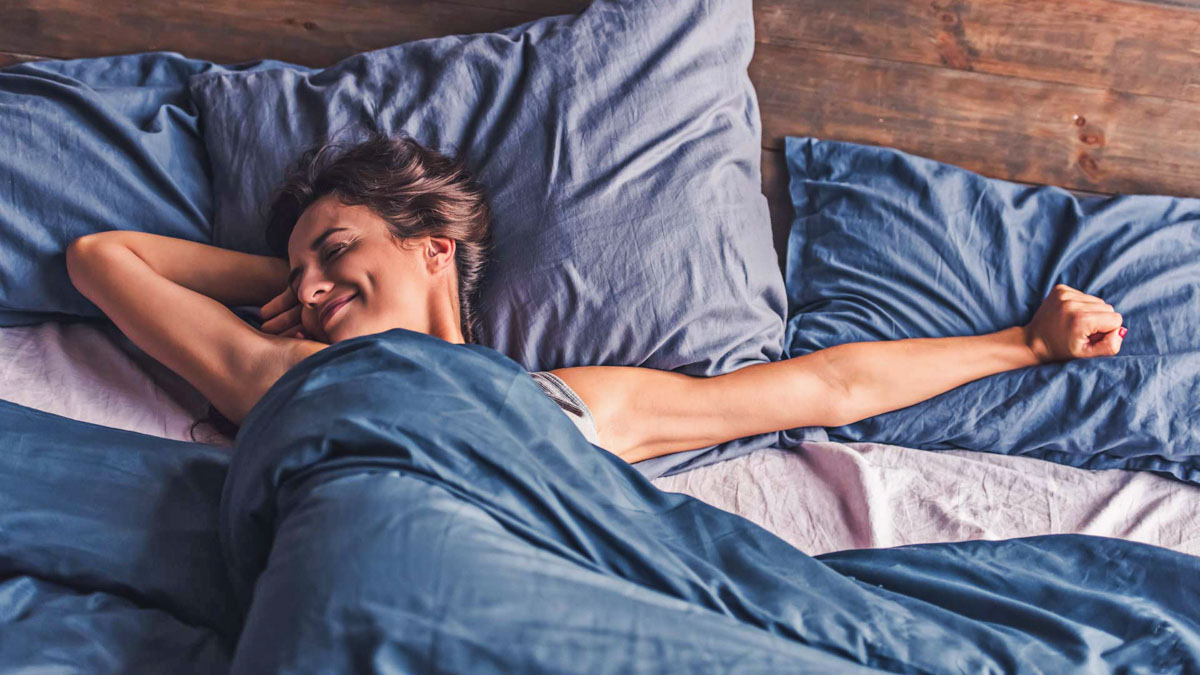Getting the right training program and sticking to it is essential. But if you and/or your athletes are truly going to reach maximum athletic potential, you have to also dial in recovery. And there’s no more important component than sleep. Among the 85,000+ supplements on the market, there are hundreds of different formulas promising to help you fall asleep faster, eliminate nighttime disturbances, increase the amount of time spent in certain sleep stages, and more. Melatonin is one of the most heavily researched. In this article, we’ll take a look at what it is, what it does in your body, and whether supplemental melatonin is right for you.
Melatonin 101
Melatonin is a hormone that’s released via your pineal gland, a pea-sized piece of tissue located behind the third ventricle in the brain. Though it’s a tiny part of the endocrine system in terms of size, this little gland plays a big role in your endocrine system as it’s vital for regulating the sleep-wake cycle. Your body prompts the pineal gland to produce melatonin in response to darkness, with levels rising after the sun sets and falling as dark changes to light in the morning.
Why Take a Melatonin Supplement?
While your body makes a certain amount of melatonin, how much depends on several factors, including the amount of sunlight you’re exposed to during the day (more sun, more melatonin, as a rule) and the type and intensity of artificial light you’re exposed to at night (blue light from screens and bright LEDs can delay and reduce melatonin release). While your lifestyle habits won’t ever stop your pineal gland from producing some melatonin, if you’re indoors a lot and are staring at a screen at night, they can have detrimental effects, including taking a long time to fall asleep and restlessness after you finally drift off.
It’s such sleep issues that prompt some people to try supplemental melatonin. A 2017 review of the literature found that supplementing melatonin helps people fall asleep faster and reset disordered sleep-wake patterns. A German research team investigated the impact of melatonin on different sleep stages and concluded that it extends the amount of time participants spent in restorative REM sleep. Writing in Frontiers in Physiology, two Australian scientists noted that along with exercise and light exposure, supplementing with melatonin can help athletes who travel to train and compete reduce the severity of jet lag.
Melatonin might also offer brain health benefits. A study published in Current Neuropharmacology concluded that it has neuroprotective effects and might help slow the onset of Alzheimer’s and other degenerative conditions. The authors of a paper released via The Journal of Pineal Research noted that “Melatonin is uncommonly effective in reducing oxidative stress,” which means it helps minimize free radical damage and tame excess inflammation. Another group of researchers concluded that supplemental melatonin shows promise in reducing the risk of cardiovascular disease.
Melatonin and Pre-Race Sleep Banking
Some athletes start taking melatonin and other supplements to try and bank sleep before a big race. This might prove to be effective if you begin several weeks before your event, but as with any supplement, you should avoid shaking up your pre-race routine too close to your competition in case you experience side effects or it doesn’t work for you. So if you’re going to take melatonin, make sure you begin earlier in your training block rather than a few days before race day.
Looking at the bigger picture, it’s also unwise to shake up your overall sleep schedule before a big race. Sure, set your alarm for 30 to 45 minutes later if you feel you need a little extra shut-eye as part of your tapering/pre-race recovery phase. However, you should avoid any dramatic shifts as this will merely shock your system and could actually lead to you getting worse quality sleep than if you’d simply stuck to what you were doing before.
Melatonin Myths and Downsides
If you’re taking blood thinners (aka anticoagulants), immunosuppressants, or diabetes drugs, there could be possible interactions, so you probably shouldn’t take melatonin. Even if you’re not on such prescriptions, you might experience side effects like daytime sleepiness, an upset stomach, or dizziness, although these are less common than with other sleep aids. If you are affected in any of these ways, stop taking melatonin. To be proactive rather than reactive, you could always check with your doctor, nutritionist, or coach before taking this or any other supplement.
Despite what some hysterical blog posts might try to tell you, melatonin is not addictive or habit-forming. Another myth is that taking supplemental melatonin will stop your body from producing it via your pineal gland, limit its production, and/or disrupt your normal sleep cycles. There’s no reliable clinical evidence to back this up, so unless melatonin doesn’t work for you or you experience side effects, there’s no need to worry about it disrupting your physiology.
That being said, not all supplements are created equal and unfortunately, some manufacturers use cheap ingredients, use lax manufacturing processes that could expose you to cross-contamination with other substances, or simply don’t put in as much melatonin as they claim. With this in mind, if you’re going to take melatonin (or any other supplement, for that matter), try to find an option that’s NSF Certified for Sport or has received Informed-Sport or Labdoor designations. This will ensure that what’s on the label is actually in the bottle and is free of contaminants and banned substances.
Overall, melatonin has a wider body of evidence to back its efficacy and safety than any other natural sleep aid. Though some people might experience side effects, these are far less common and extreme than those associated with prescription sleep medications, and melatonin doesn’t carry the same risk of dependency. On the plus side, it might speed sleep onset, reduce nighttime wakefulness, and extend the amount of time you spend in restorative slumber.
Our advice? Make sure your sleep hygiene is dialed in first (sleep in a cold, dark room without technology, limit afternoon/evening caffeine, avoid screens two hours before bed, etc.). Then if your sleep still needs a helping hand, you could try a small amount of melatonin (start with 1 mg and increase up to 3 mg as needed) for a couple of weeks and see if it helps you sleep longer and better.


